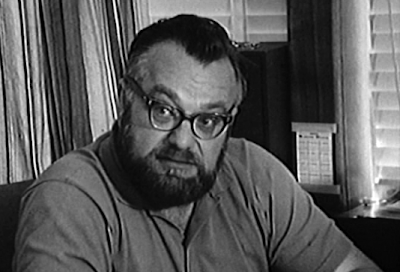Depending on which artistic realm they inhabit, most people familiar with Saul Zaentz know him for one of two reasons: either as the producer of nine films from 1975 through 2006; or as the music producer and owner of Fantasy Records who got into several quite notorious legal spats with John Fogerty over the Creedence Clearwater Revival catalog.
In the former capacity, Zaentz took home an impressive three Academy Awards for Best Picture: One Flew Over the Cuckoo's Nest (1976), Amadeus (1985) and The English Patient (1997). His other films included The Mosquito Coast, The Unbearable Lightness of Being and animator Ralph Bakshi's 1978 version of The Lord of the Rings, decades before Peter Jackson tackled the same material.
As the head of Fantasy, Zaentz is known mostly for embarking on a series of shrewd acquisitions of small jazz labels, including Prestige (1971), Riverside and Milestone (1972), Stax (1977), Contemporary (1984) and Pablo (1987).
Additional details about his career can be found in this Variety obituary.
Given this quite famous individual's thoroughly professional bearing — check YouTube for clips of him at the aforementioned Oscar ceremonies — it can be quite jarring to see him scruffy and youthfully laid back, at left, in Ralph Gleason's Anatomy of a Hit. Zaentz gets a fair amount of screen time in this 1963 documentary about Vince Guaraldi and the creation, packaging and subsequent explosive popularity of "Cast Your Fate to the Wind." Indeed, Zaentz was a key player at Fantasy during the crucial decade when Guaraldi blossomed from sideman, primarily in various Cal Tjader combos, to leader of his own groups.
This March 1955 clip from Billboard Magazine announces Zaentz's having been named Fantasy's national sales manager; roughly a year later, he's the one who offered Guaraldi a record deal and three-year contract with the label. Zaentz then faded into the background, at least as far as Guaraldi's career at Fantasy was concerned; the pianist's life subsequently was ruled by label co-owner Max Weiss. That relationship soured due to Weiss', ah, complicated contracts, which eventually prompted Guaraldi to sue the label. The litigation might have continued for years, except for an intriguing coincidence: In September 1967, a consortium led by Zaentz purchased Fantasy and Galaxy Records from Max and Soul Weiss ... and, a few months later, the twin lawsuits between Guaraldi and Fantasy were dissolved, the pianist having won his freedom and a very substantial improvement in royalty payments.
Might Zaentz have helped orchestrate that favorable outcome for Guaraldi? After all, the two had known each other even before their shared involvement with Fantasy, back when Zaentz was a bookkeeper at Melody Sales, and also, later, as the head of sales at Mercury Records. Perhaps Zaentz respected Guaraldi and that long friendship. On the other hand, it's quite obvious — from the various lawsuits with Fogerty — that, as a businessman, Zaentz was tough as nails, and not known for cutting anybody any slack.
We'll never know the truth, but this much is certain: Zaentz played an extremely important role in Guaraldi's career.

1 comment:
Zaentz was also the later husband of Charles Mingus' wife Celia. In the mid-sixties, when Mingus' career was hitting a rough spot, Fantasy helped distribute Mingus' Debut and Mingus Enterprises label (re)releases. So there was humanity there beyond the bottom line.
Post a Comment